
In Decem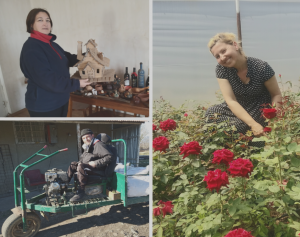 ber 2019 the first half of the project, which began in late July 2018, was completed. This project is a continuation of the first two phases of the program, which has been implemented since 2012. In this regard, the intermediate results were summarized and the internal assessment of the project was made, the summaries of which are presented below.
ber 2019 the first half of the project, which began in late July 2018, was completed. This project is a continuation of the first two phases of the program, which has been implemented since 2012. In this regard, the intermediate results were summarized and the internal assessment of the project was made, the summaries of which are presented below.
The most important outcome of the project is that as a result of two grant competitions 42 micro entrepreneurs were funded 39 out of which received project funds for the launch of their business ventures and three for extension. Those micro businesses were chosen as a consequence of the multi-stage selection which started with the awareness raising campaign in all sixty target villages and with submission of the two-page applications describing the business ideas. Then the participants of the competition who passed the initial screening, went through two-day training on business planning and developed the detailed business plans. The business plans were also reviewed and assessed by the selection committee consisting of the project team and invited business development experts. The final stage of the selection was presentation of the business plan by the participants in the contest following which the winners received project funds for purchasing of the requested capital assets. The mandatory prerequisite was co-financing on the part of the beneficiaries amounting 30% of the total investment in case of business start and 40% in case of the business expansion. Share of the women-led microbusinesses accounted for 27% of the total number of the supported micro entrepreneurs and share of the young entrepreneurs accounted for 20% of the total number.
It should be noted that among the funded businesses 27 were related to on-farm and 15 to off-farm production (64% and 36% accordingly). From among the agricultural businesses the maximal number accounted for greenhouse production of vegetables and herbs which makes sense because when well managed this is one the most profitable and sustainable rural business directions. The second largest number of the supported businesses accounted for berry producers; the growing interest towards this direction became an increasingly stable trend recently. Agro service provision was also at the top three directions. As for the non-agricultural businesses the most interest was taken in candy production and sewing garments.
From the very first days the project team offered advisory services and consultation to the supported beneficiaries. All capacity building activities such as coaching sessions, mentorship, professional and technical training were aimed at improving their business skills and knowledge and contributing to sustaining business ventures for the long term. Mandatory tax training was intended to strengthening beneficiaries’ entrepreneurial culture through providing them with a working knowledge of the fundamental tax principles and concepts. The significant result of this training was also that the participants viewed the wider socio-economic, administrative and political context within which taxes are imposed and came to understanding that despite the fact that taxes could constitute costs to entrepreneurs, the state creates favorable tax environment for small businesses.
Voluntary vocational trainings sessions were intended to supporting professional development of the beneficiaries. Those micro entrepreneurs who needed it and the points of their professional interest were determined through monitoring and discussion. In all five professional training courses were conducted including food safety basic requirements, greenhouse production and rose production technology. All participants of the professional training courses evaluated them as excellent in terms of relevance and usefulness. The professional training already contributed to improvement of the beneficiaries’ professional knowledge and practical skills as almost all their participants had implemented given recommendations and benefited from it.
Coaching sessions delivered individually by the project staff were very important in terms of equipping the supported microbusinesses with the technical skills for effective business administration. There were several mandatory topics to be delivered to all them: SWOT analysis, marketing basics, unit cost calculation and strategic planning. Other topics will be tailored to the specific needs and profiles of the businesses. The beneficiaries believe that coaching had already contributed to improvement of their accounting and cost projection skills and to increase in their customer number.
Mentorship is very important in terms of transferring knowledge and experience of high performing microbusinesses to their less experienced colleagues. Eight project mentors held a series of the meetings with the starting micro entrepreneurs who commended usefulness of the mentor’s recommendations and had already applied part of them.
Some interim quantitative and qualitative results achieved within the first phase of the project implementation are presented below:
– 47 jobs were created (including 42 self-employed jobs and 5 part-time jobs created by three existing micro entrepreneurs);
– Total profit generated by starting microbusinesses amounted to 148,945 GEL;
– Total profit generated by existing microbusinesses amounted to 16,168 GEL;
– Average monthly profit of the microbusinesses amounted to 620 GEL that is six times higher than the planned indicator;
– 23 micro entrepreneurs paid back the total investments i.e. total value of the project funds and their contributions;
– 14 supported micro entrepreneurs established services which had no counterparts before in their villages;
– 36 supported micro entrepreneurs believe that the delivered coaching sessions had already contributed to improvement of their performance;
– 15 participants of the professional training for greenhouse producers highly commended it and applied the trainers’ recommendations;
– 12 microentrepreneurs received consultation of the project mentors; eleven out of them commended mentors’ advice and applied their practical recommendations to varying degrees.
One of the important outcomes of the project was that access to goods and services in the target communities was improved as far as 42 supported micro businesses produced more than 255,000 GEL worth products and services and more than 2035 people got access to their products. Besides, all supported beneficiaries feel ownership over their businesses – they understand that they bear full responsibility for the results of their economic activities. Quite broad coverage of the target groups within the informational campaigns (1080 people in total) and their assessment of the project as compliant to their basic needs may be indicative of its social impact.
Mid-term evaluation conducted internally by the end of 2019 confirmed that the project is highly relevant to the needs of the local population where there is a lack of available funding at the level of grassroots. The project is highly appreciated not only by the supported micro entrepreneurs but also by those who did not receive funds, by the local government and the business experts. Vast majority of the respondents surveyed expressed a view that the project objective fully corresponds to the small entrepreneurship development context and SBDP is necessary for the local communities. The project makes real change to improvement of the peoples’ life. Of course this is not a large scale effect however, the same can be said about the projects with much bigger budgets.
Appreciation of the project and belief in its positive outcome conditioned the request on the part of the non-target communities of Baghlepi (Jurukveti community), Zemo Chibati and Chala (Chibati community) about including them into the SBDP target area on the basis that their territories had been affected by the WREP. Representatives of the administration of Baghlepi village successfully collaborated with the project and after fulfilling necessary procedures the permission from the donor was obtained to include Baghlepi to the list of the target villages. The administration of this village with population of about 600 was delighted to find out that they were not only included to the project but will also take part in the grant competition in 2020.


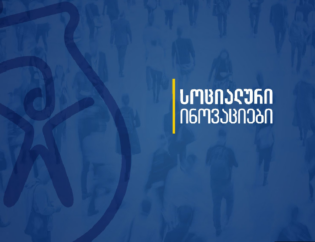

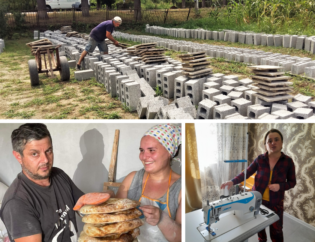

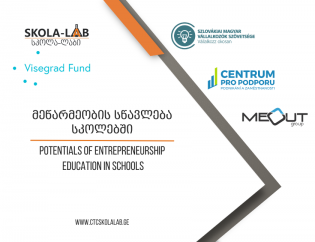
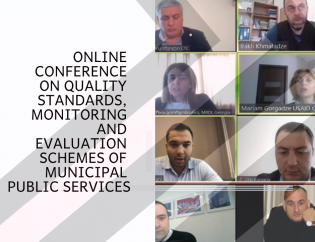

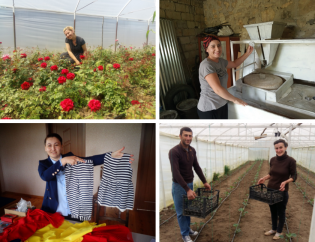
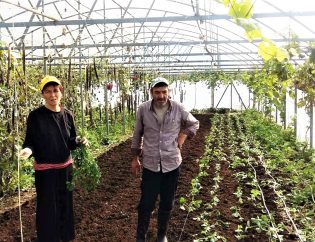
You must be logged in to post a comment.